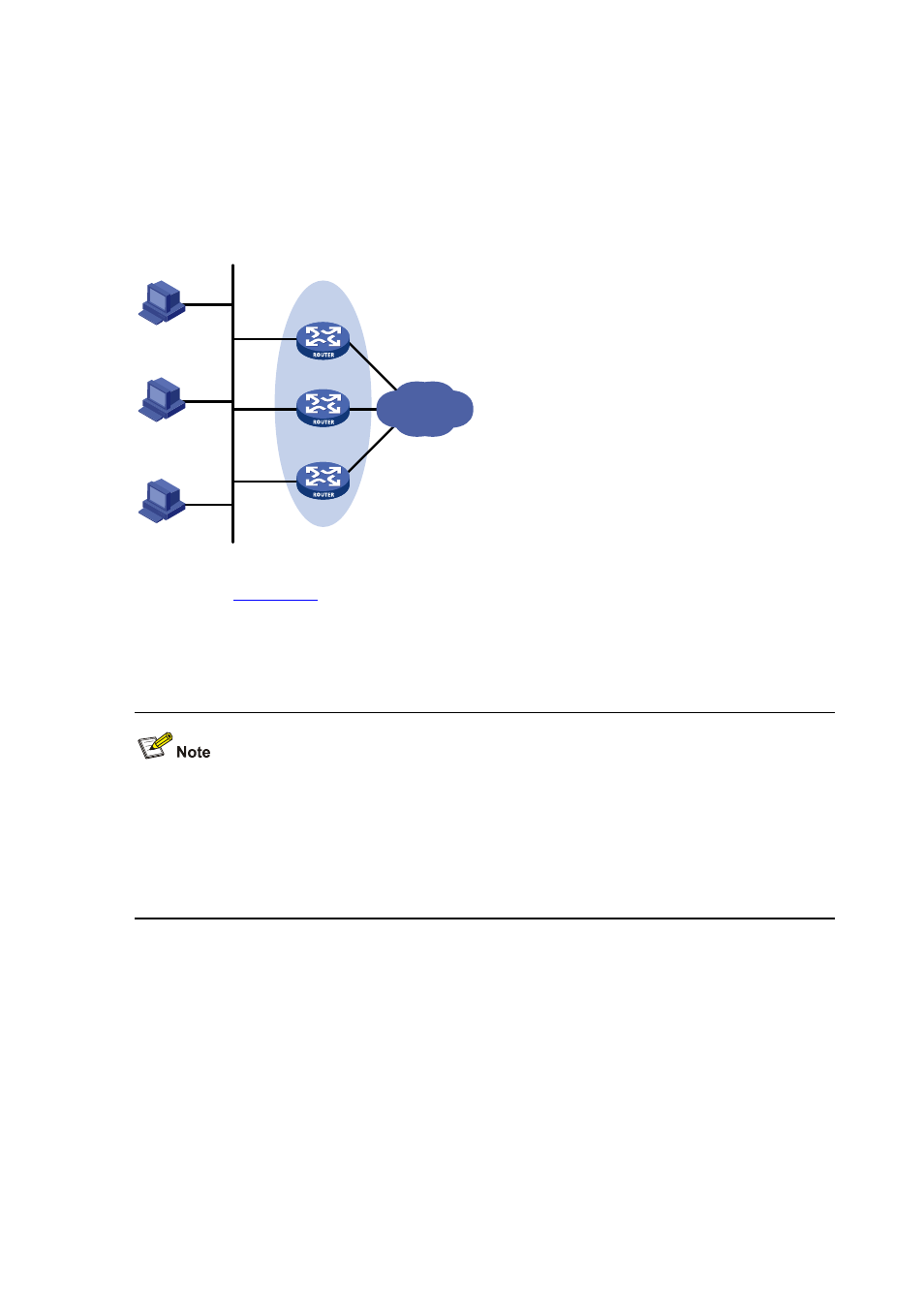Vrrp priority – H3C Technologies H3C S7500E Series Switches User Manual
Page 136

10-3
z
Routers in the VRRP group elect a master that acts as the gateway according to their
priorities. The other routers function as the backups. When the master fails, to ensure that
the hosts in the network segment can uninterruptedly communicate with the external
networks, the backups in the VRRP group elect a new gateway to undertake the
responsibility of the failed master.
Figure 10-2 Network diagram for VRRP
Host A
Host B
Host C
Router A
Router B
Router C
Virtual router
Network
As shown in
, Router A, Router B, and Router C form a virtual router, which has its
own IP address. Hosts on the Ethernet use the virtual router as the default gateway.
The router with the highest priority among the three routers is elected as the master to act as
the gateway, and the other two are backups.
z
The IP address of the virtual router can be either an unused IP address on the segment
where the VRRP group resides or the IP address of an interface on a router in the VRRP
group. In the latter case, the router is called the IP address owner.
z
Only one IP address owner can be configured for a VRRP group.
z
Status of a router in a VRRP group includes master, backup, and initialize.
VRRP priority
VRRP determines the role (master or backup) of each router in a VRRP group by priority. A
router with a higher priority is more likely to become the master.
VRRP priority is in the range of 0 to 255. The greater the number, the higher the priority.
Priorities 1 to 254 are configurable. Priority 0 is reserved for special uses and priority 255 for
the IP address owner. When a router acts as the IP address owner, its running priority is always
255. That is, the IP address owner in a VRRP group acts as the master as long as it works
properly.
